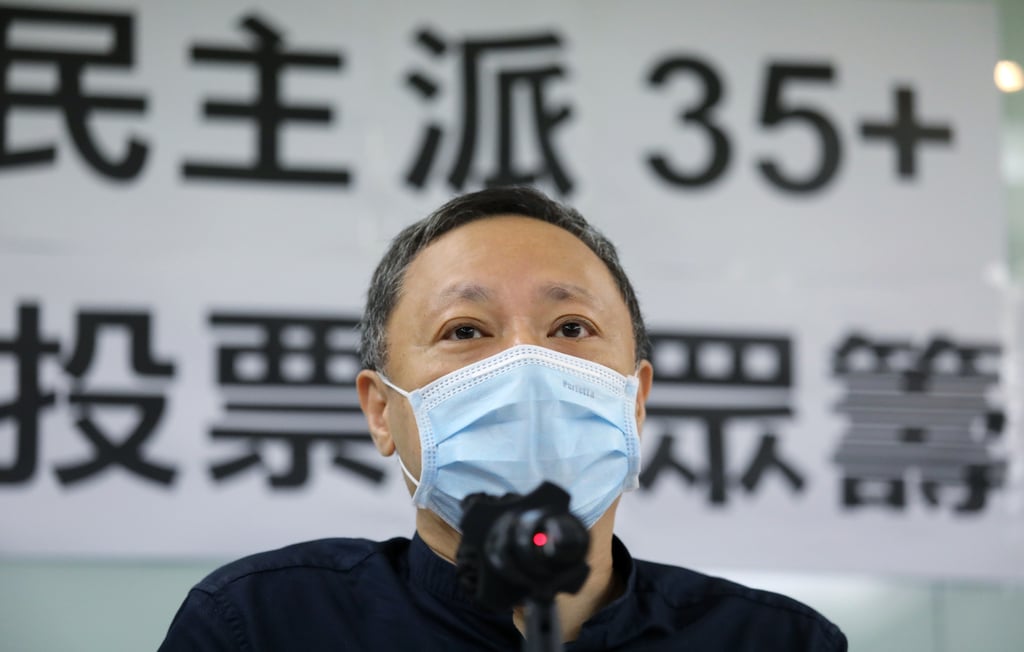Hong Kong 47: witness tells court 2020 opposition primary plan turned into ‘insane’ proposal for ‘mutual destruction’
- Au Nok-hin says he insisted primary candidates should not be forced to veto budgets due to risk of breaching national security law
- Former legislator also tells court former law professor Benny Tai went too far with plan to cause ‘bloody’ confrontation with Beijing

Au Nok-hin, an ex-politician, on Wednesday said it was “regrettable” that former law professor Benny Tai Yiu-ting had written a series of articles that favoured blocking government budgets and bills in the Legislative Council as a means of toppling the city’s leader.
“I once thought that [whether to veto the budgets] was a choice to be made by individual candidates, but, as he gradually published articles about ‘mutual destruction’ in June [2020], I started to feel that his views had led to changes in the nature of the primary election,” Au told the West Kowloon Court.

The former Democratic Party lawmaker said he had insisted that contenders in the unofficial poll in July that year should not be forced to veto budgets regardless of their merits because of the “very high” risk of breaching the Beijing-imposed national security law that had just come into force.
Au was speaking as he was cross-examined by defence lawyers in a 90-day trial involving 16 of the 47 opposition figures who took part in the primary.
The 16 have denied allegations that they were part of a conspiracy to subvert state power.
The 31 others, including Tai, Au and two other coordinators of the poll, have pleaded guilty or indicated they would admit liability.
